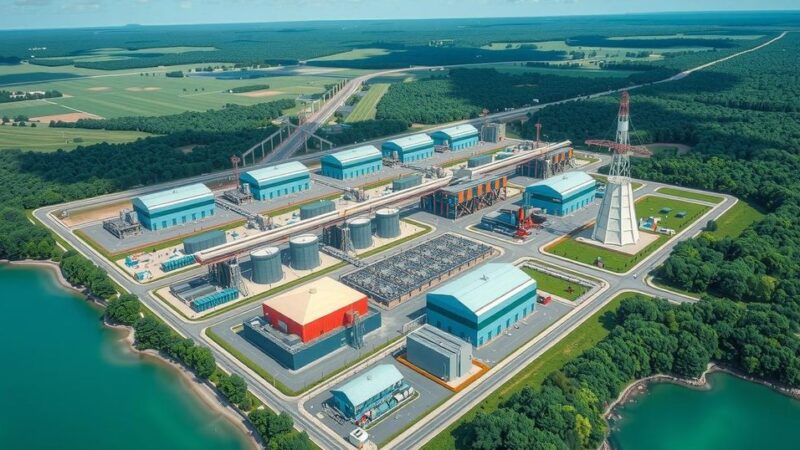Maldivian President Mohamed Muizzu visits India to seek financial support amid an economic crisis marked by dwindling foreign reserves and an increased risk of debt default. This visit follows a campaign aimed at reducing Indian influence in the archipelago, yet the Maldives’ precarious financial situation underscores the need for renewed diplomacy. Muizzu aims to secure financial aid and restore relations strained by past rhetoric and incidents, recognizing India’s critical role in the Maldives’ stability and economic recovery.
During his inaugural visit to India since assuming presidency, Maldivian President Mohamed Muizzu is anticipated to seek financial aid to address the economic crisis facing the Maldives, which is at risk of defaulting on its debts. His election campaign was marked by an ‘India out’ policy that aimed to diminish New Delhi’s influence, resulting in strained relations between the two nations. However, the Maldives’ precarious economic situation, underscored by dwindling foreign exchange reserves and a recent downgrade of its credit rating by Moody’s, necessitates this diplomatic overture. President Muizzu is expected to engage in discussions regarding potential financial arrangements, including a currency swap deal and aid to alleviate the nation’s debt burden, ahead of significant repayments due in the coming years. Previously, he opted to engage with Turkey and China—countries seen as pivotal in regional geopolitics—further complicating relations with India. Analysts suggest this visit signals a pragmatic turn as the Maldives grapples with declining revenues from tourism, exacerbated by negative sentiments towards India. The Maldives’ geographical positioning has historically made it a focal point of Indian influence, but the Muizzu administration’s attempts to solidify ties with China raised alarms in New Delhi. Notable incidents, such as derogatory comments made by Maldivian officials about Indian Prime Minister Narendra Modi, led to calls for a boycott of the Maldives among Indian citizens, resulting in noticeable declines in tourism, a vital economic sector for the nation. As President Muizzu seeks support from India, where bilateral relations are yet to stabilize, his visit represents a critical juncture. It is indicative of an attempt to mend ties and underscore the Maldives’ reliance on India for economic stability and support.
The Maldives is an island nation located in the Indian Ocean, consisting of around 1,200 coral islands and atolls. With a population of approximately 520,000, the Maldives relies heavily on India for food, infrastructure development, and healthcare services. The political landscape shifted with the election of Mohamed Muizzu, whose campaign was based on a desire to reduce Indian influence in the Maldives while simultaneously facing an urgent financial crisis characterized by decreasing foreign currency reserves and a growing public debt, estimated at $8 billion. In this context, Muizzu’s recent choices and statements signaling a reset in bilateral relations with India are pivotal for the future stability of the Maldives.
In summary, President Mohamed Muizzu’s visit to India represents a significant shift in the Maldives’ foreign policy, driven by heightened economic needs and the realities of dependency on India. As the Maldives navigates a precarious financial landscape and attempts to revive tourism and foreign investment, fostering a collaborative relationship with India is both essential and urgent. The outcome of this visit will likely play a crucial role in determining the Maldives’ economic trajectory and its position within regional geopolitics.
Original Source: www.bbc.com







